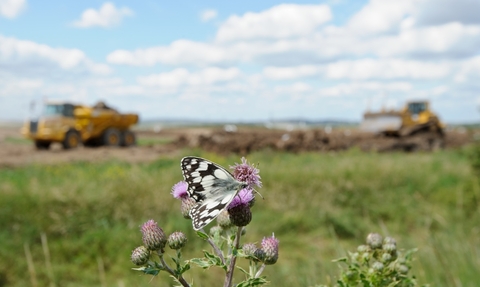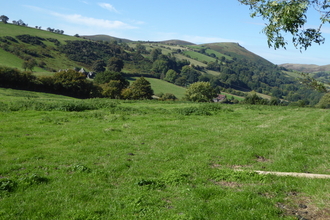
Planning advice
Which applications do we comment on?
The Trust is not a statutory consultee but our local planning authorities may seek our opinion where development is in close proximity to local Wildlife Sites or nature reserves.
Due to limited resources, it is generally only within our remit to make representations in relation to large-scale applications and applications which may have a significant impact on Wildlife Sites or nature reserves. Local authorities and/or Natural England (acting as a statutory consultee where an application involves a SSSI or protected species), both have responsibilities to ensure protection and enhancement of the natural environment through the planning system.
Please only contact us regarding applications which fits with above remit.
We comment on selected individual planning applications.
At a local level we actively engage in consultations on local plans (now development frameworks) for Shropshire and Telford & Wrekin
Alongside other Wildlife Trusts we campaign at a national and regional level for policies that protect and enhance our natural environment
We have to focus our attention on the applications that have the most impact and where our comments will be most effective. With around 10,000 applications across Shropshire and Telford & Wrekin we are unlikely to be able to get involved with most.
This means:
We will look at the potential wildlife impacts of each application and prioritise those with the greatest impact and where our comments are likely to be effective. In most cases we find that the planning authorities have dealt with the wildlife issues and there is nothing that we can add that will be considered within the limits of the planning system.
We cannot change the planning system! The extent to which the planning system can take wildlife into account is limited and it is deemed acceptable for developments to mitigate and compensate for impacts to make a scheme acceptable.
What you can do
Planning applications must be made to the Local Planning Authority (LPA), for any development that involves the change of use to a piece of land. For us this means either Shropshire Council or Telford and Wrekin Council.
Having received a planning application, the LPA is required to consider the economic, social and environmental implications of the proposal, and may seek views from interested parties, including local residents. The full range of consultations that the LPA is obligated to undertake will depend on the scale of the proposal and the nature of the development.
Local authorities, planning authorities and all public bodies have a legal duty to have regard to biodiversity. If there are reasonable grounds to anticipate an ecological impact, surveys must be undertaken prior to the application.
Where can you see the details?
Planning applications can usually be obtained from the local authority's website or by contacting the planning officer. When looking through the application you should look out for whether it will directly or indirectly affect wildlife habitats, at or near the proposed development site. Some applications may have an environmental statement or ecological report (a professional study on how the development may affect the environment) which should detail any surveys that have been carried out.
Commenting on a planning application
When writing a letter of response use the words 'I/we object' if you are against the application as this holds more weight.
You can use a conditional objection where a development is acceptable subject to a few alterations or conditions. Make sure your response is reasoned and any conditions you suggest are realistic and achievable. If you have some evidence of significant wildlife interest you may also lodge a request for a more detailed biological survey/study of this particular feature, e.g. a bat survey.
Objections should include supporting evidence that is based on material considerations such as relevant legislation and policies. Look for policies that support your objection in the National Planning Policy Framework (download below) and your Local Plan. If you can stick to the facts and list the elements of the application that conflict with local and national policies this will make it clearer for the planning officers and more likely they will be able to recommend refusal.
In general, objections can be made on nature conservation grounds where a development:
- Directly affects an important wildlife site or priority habitat
- Indirectly affects an important wildlife site or priority habitat (e.g. hydrology, visitor pressure, noise or pollution)
- Affects a protected species, or a priority species (as listed under either the UK or County Biodiversity Action Plan)
- Reduces green space available as wildlife corridors along rivers, streams and hedgerows etc, especially through urban areas
After a decision has been made
If you suspect any failure to meet planning conditions then contact the planning enforcement teams at the appropriate council.
If you believe that a criminal offence has taken place (e.g. to intentionally kill, injure or take any wild bird; disturb great crested newts, bats, etc.) then phone the police on 101.
If you are uncertain then phone Shropshire Wildlife Trust and we can try to advise but we have no legal or planning powers.
A breach of conditions, the law or best practice could occur at any stage of development from pre-construction/ clearance phases to occupation and delivery of management plans.

